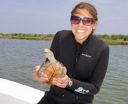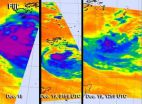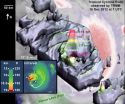(Press-News.org) Since the early 1970s school shootings at American elementary, secondary and higher education institutions have been a painful reality for American society. After each incident – like the recent attack in Newtown, CT – there is voluminous dialogue about what can be done to prevent the next, such tragedy. But can anything realistically be done to prevent these horrific crimes? A new article¹ by Dr. Daniel J. Flannery at Case Western Reserve University, and colleagues, scheduled to appear in the January issue of Springer's Current Psychiatry Reports, attempts to parse out what we have learned from past events, and what we can do about stopping the next attack.
The article conducts a thorough examination of past studies on the topic, focusing primarily on "targeted" and "rampage," or "spree," shootings. Targeted shootings are those where there is a specific target, individual group or institution, and rampage or spree shootings are those that involve multiple victims, either known or unknown to the assailant. What the article finds is that, while there are some characteristics shared by past shooters – narcissism, depression, low self esteem and a fascination with violence – there are not enough similarities to develop any distinctive profile of a potential shooter.
The authors conclude that the most effective way of trying to prevent these tragedies is through threat assessment, which requires fundamental testing of such traits as: suicide risk, homicide risk, thought processes, reality testing, mood and behavior as well as relevant social and developmental histories. Also helpful is to pay particular attention to any obsession with firearms or violence, and the presence of writings or drawings with violent themes. While this may seem obvious, unfortunately, the resources available to mental health workers in schools do not sufficiently provide for these assessments. The authors also conclude that mental health workers and adults must be socialized to take threats of interpersonal violence seriously, as they have been with threats of suicide.
Finally, Flannery and colleagues urge for a renewed focus on treatment for the victims of such crimes. Usually most of the focus in the aftermath of such events lies in trying to come up with a reason why someone would perpetrate such a crime, or in other words, trying to make some sort of sense out of these tragedies. While this is understandable, considerable care must be given to ensure that the victims of these crimes receive the mental health treatment they require.
"School shootings are not all the same and may require different approaches to prevention and treatment, especially with respect to identifying risk factors at the individual, school or community levels, and particularly with regard to examining the role that mental health issues may play to increase risk for perpetration," the authors conclude. "Community mental health providers and professionals, particularly psychiatrists, are essential partners and must continue to seek avenues for working with schools to conduct thorough threat assessments, to identify young persons with significant mental health needs and to develop protocols for identification, prevention, and treatment that will effectively support the social and emotional needs of our most vulnerable youth and communities."
###
Reference
1. Flannery D et al (2013). Violence and School Shootings. Current Psychiatry Reports; DOI 10.1007/s11920-012-0331-6.
Interested journalists are invited to read the full text article as a preview to next month's publication. Contact information for Dr. Flannery is also available on request.
School shootings: What we know and what we can do
A new article explores what we have learned about these tragic incidents, and what can be done to prevent them
2012-12-20
ELSE PRESS RELEASES FROM THIS DATE:
Alzheimer's disease: Cutting off immune response promises new approach to therapy
2012-12-20
The Bonn site of the German Center for Neurodegenerative Diseases (DZNE) and the University of Bonn are leading contributors.
The complex named "NLRP3 inflammasome" is composed of several proteins and plays a key role in the immune system. It resembles a fire alarm sensor that triggers a chain reaction when activated. As a result, immune cells are mobilized and substances that foster inflammation are released. This process can be triggered by infections, which are subsequently suppressed by the immune response. However, in the case of Alzheimer's disease, the activation ...
Impact of caring for adult child with disability studied
2012-12-20
The study, published in Psychiatric Services, highlights economic and psycho-social challenges faced by parents of adult children with disabilities, compared with parents of children without disabilities.
When either parent becomes disabled, the study found, families' report lower financial well-being. This being especially true when an aging parent must contend with both the needs of an adult child with mental illness and a spouse who develops an age-related disability.
Not surprisingly, parents are themselves susceptible to developing disabilities and chronic conditions ...
Super-fine sound beam could one day be an invisible scalpel
2012-12-20
ANN ARBOR—A carbon-nanotube-coated lens that converts light to sound can focus high-pressure sound waves to finer points than ever before. The University of Michigan engineering researchers who developed the new therapeutic ultrasound approach say it could lead to an invisible knife for noninvasive surgery.
Today's ultrasound technology enables far more than glimpses into the womb. Doctors routinely use focused sound waves to blast apart kidney stones and prostate tumors, for example. The tools work primarily by focusing sound waves tightly enough to generate heat, says ...
Pigs in southern China infected with avian flu
2012-12-20
Researchers report for the first time the seroprevalence of three strains of avian influenza viruses in pigs in southern China, but not the H5N1 avian influenza virus. Their research, published online ahead of print in the Journal of Clinical Microbiology, has implications for efforts to protect the public health from pandemics.
Influenza A virus is responsible both for pandemics that have killed millions worldwide, and for the much less severe annual outbreaks of influenza. Because pigs can be infected with both human and avian influenza viruses, they are thought to ...
Transplanted neural stem cells slows als onset and progression in mouse models
2012-12-20
WORCESTER, MA – Promising new research provides evidence that ALS, amyotrophic lateral sclerosis (ALS), also known as Lou Gehrig's disease, may be treatable using neural stem cells. A consortium of researchers at multiple institutions, including the University of Massachusetts Medical School, Sanford-Burnham Medical Research Institute and Brigham and Women's Hospital, have shown that neural stem cells, when transplanted into the spinal cord of a mouse model with familial ALS, slow disease onset and progression while improving motor function, breathing and survival time ...
Study reveals that animals contribute to seagrass dispersal
2012-12-20
(December 19, 2012) Look out the window and you're likely to see the dispersal of seeds—dandelion tufts in the wind, a squirrel burying an acorn, a robin flying off with a dogwood fruit. You might even have a burr "velcroed" to your sock.
Sarah Sumoski, a recent graduate of the Virginia Institute of Marine Science, has now published a study of seed dispersal in a less-familiar environment—the eelgrass beds of Chesapeake Bay. The study—the first to show that marine animals can disperse eelgrass seeds—appears as the featured article in today's issue of Marine Ecology Progress ...
Time series of infrared NASA images show Cyclone Evan's decline
2012-12-20
Cyclone Evan is now far south of Fiji and wind shear and cooler sea surface temperatures have been taking their toll on the storm and weakening it. Infrared data from NASA's Aqua satellite has shown a quick decline in the storm's structure over one day.
A time series of infrared images from the Atmospheric Infrared Sounder (AIRS) instrument that flies aboard NASA's Aqua satellite showed changes in intense thunderstorms within Cyclone Evan between Dec. 18 and Dec. 19. Over a time period of 36 hours, Evan weakened from Cyclone strength to Tropical Storm strength. In an ...
NASA satellite finds an unusually tall storm-cell in Cyclone Evan
2012-12-20
NASA's Tropical Rainfall Measuring Mission or TRMM satellite found an unusually tall towering thunderstorm in Cyclone Evan.
According to Owen Kelley of the TRMM satellite team at NASA's Goddard Space Flight Center in Greenbelt, Md, the most startling feature of the December 16 overflight of Tropical Cyclone Evan was the extremely tall storm-cell in the north side of the eyewall. At the time TRMM passed overhead and captured an image of the storm, Evan was about to rake across the northern coast of the islands of Fiji.
The updrafts in this tower extended high enough ...
Why our backs can't read braille
2012-12-20
Johns Hopkins scientists have created stunning images of the branching patterns of individual sensory nerve cells. Their report, published online in the journal eLife on Dec. 18, details the arrangement of these branches in skin from the backs of mice. The branching patterns define ten distinct groups that, the researchers say, likely correspond to differences in what the nerves do and could hold clues for pain management and other areas of neurological study.
Each type of nerve cell that the team studied was connected at one end to the spinal cord through a thin, wire-like ...
NASA's Operation IceBridge data brings new twist to sea ice forecasting
2012-12-20
Shrinking Arctic sea ice grabbed the world's attention again earlier this year with a new record low minimum. Growing economic activity in the Arctic, such as fishing, mineral exploration and shipping, is emphasizing the need for accurate predictions of how much of the Arctic will be covered by sea ice. Every June, an international research group known as the Study of Environmental Arctic Change (SEARCH) publishes a summary of the expected September Arctic sea ice minimum known as the Sea Ice Outlook. The initial reports and monthly updates aim to give the scientific community ...
LAST 30 PRESS RELEASES:
National poll finds gaps in community preparedness for teen cardiac emergencies
One strategy to block both drug-resistant bacteria and influenza: new broad-spectrum infection prevention approach validated
Survey: 3 in 4 skip physical therapy homework, stunting progress
College students who spend hours on social media are more likely to be lonely – national US study
Evidence behind intermittent fasting for weight loss fails to match hype
How AI tools like DeepSeek are transforming emotional and mental health care of Chinese youth
Study finds link between sugary drinks and anxiety in young people
Scientists show how to predict world’s deadly scorpion hotspots
ASU researchers to lead AAAS panel on water insecurity in the United States
ASU professor Anne Stone to present at AAAS Conference in Phoenix on ancient origins of modern disease
Proposals for exploring viruses and skin as the next experimental quantum frontiers share US$30,000 science award
ASU researchers showcase scalable tech solutions for older adults living alone with cognitive decline at AAAS 2026
Scientists identify smooth regional trends in fruit fly survival strategies
Antipathy toward snakes? Your parents likely talked you into that at an early age
Sylvester Cancer Tip Sheet for Feb. 2026
Online exposure to medical misinformation concentrated among older adults
Telehealth improves access to genetic services for adult survivors of childhood cancers
Outdated mortality benchmarks risk missing early signs of famine and delay recognizing mass starvation
Newly discovered bacterium converts carbon dioxide into chemicals using electricity
Flipping and reversing mini-proteins could improve disease treatment
Scientists reveal major hidden source of atmospheric nitrogen pollution in fragile lake basin
Biochar emerges as a powerful tool for soil carbon neutrality and climate mitigation
Tiny cell messengers show big promise for safer protein and gene delivery
AMS releases statement regarding the decision to rescind EPA’s 2009 Endangerment Finding
Parents’ alcohol and drug use influences their children’s consumption, research shows
Modular assembly of chiral nitrogen-bridged rings achieved by palladium-catalyzed diastereoselective and enantioselective cascade cyclization reactions
Promoting civic engagement
AMS Science Preview: Hurricane slowdown, school snow days
Deforestation in the Amazon raises the surface temperature by 3 °C during the dry season
Model more accurately maps the impact of frost on corn crops
[Press-News.org] School shootings: What we know and what we can doA new article explores what we have learned about these tragic incidents, and what can be done to prevent them




